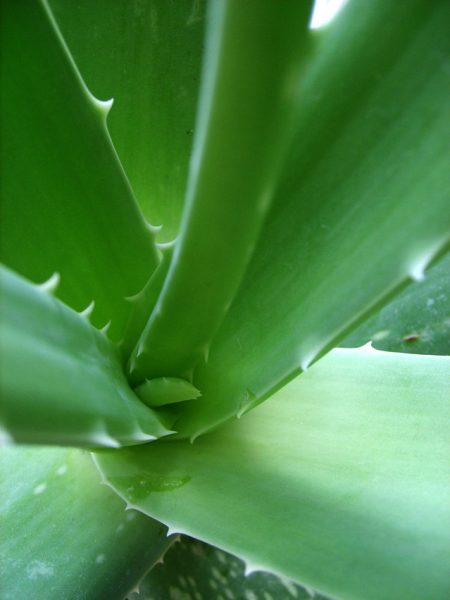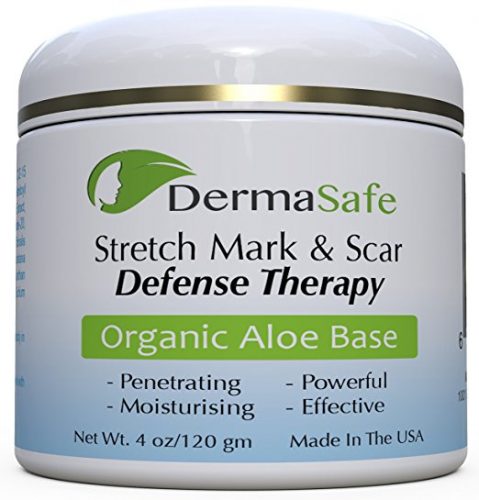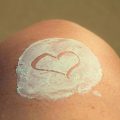
If you have family members that are anything like mine, at least one of them always has an aloe vera plant growing in their garden in case it was needed. This plant, also known as barbadensis Miller, has been used for centuries to treat skin issues. It is beneficial for skin problems like:
- Cuts
- Burns
- Psoriasis
- Itching
- Acne
- Scars
- Rashes
- Eczema
- Pimples
- Wrinkles
- Blackheads
- Boils
This unique plant looks like a cactus and when needed, a leaf can be broken apart to get the gel from inside of it. This aloe vera gel can then be used as a natural healing salve for the burn, cut, or whatever else it is being used to treat.
History
Aloe vera was documented long ago, even with a mention in the medical document, Egyptian Ebers Papyrus, which dates back to 1500 BC. It is also mentioned on some clay tablets from Mesopotamia in 2200 BC, mentioning its use in healing the digestive track. It was likely still being used long before it was recorded. Though part of a legend, it is said that Aristotle convinced Alexander the Great that he should defeat Socotra in order to obtain control of an aloe vera plantation. It has been used by the Mayas, Indian tribes, Samurais, ancient Romans, and many others throughout history.
Even if you have not yet heard of or seen an aloe vera plant, it is likely that you have heard of aloe vera and its gel. With the benefits of aloe vera, many companies have taken to add it as an ingredient to their skin care and other health products. You can find i t in creams, supplements, lotions, and even as a juice drink! While you can find and use aloe vera on its own, commercially, you will usually find it along with other beneficial ingredients to further benefit your skin. An example is Fruit of the Earth Aloe Vera Cream. In addition to the aloe vera, it also contains vitamin E and wheat germ, both of which are great for your skin and signs of aging. Vitamin E is an antioxidant, which can help with wrinkles, age spots, and more. Wheat germ is full of nutrients, over 20 of them! It helps with moisturizing your skin, aiding in collagen production, and more for smoother, younger-looking skin. One thing that people love about the use of aloe vera in skin care is that it is a natural product. When looking for a product using aloe vera in it, be sure to check out the other ingredients. Many will have other natural ingredients, such as the Fruit of the Earth cream mentioned, so you can find a great, natural mix that is great for your skin type. Be sure to check out what each ingredient does for your skin so you’re well informed on its benefits. Additionally, there are many organic aloe vera options available. You can also choose to grow your own aloe vera plant if you have a green thumb and some space for it.
t in creams, supplements, lotions, and even as a juice drink! While you can find and use aloe vera on its own, commercially, you will usually find it along with other beneficial ingredients to further benefit your skin. An example is Fruit of the Earth Aloe Vera Cream. In addition to the aloe vera, it also contains vitamin E and wheat germ, both of which are great for your skin and signs of aging. Vitamin E is an antioxidant, which can help with wrinkles, age spots, and more. Wheat germ is full of nutrients, over 20 of them! It helps with moisturizing your skin, aiding in collagen production, and more for smoother, younger-looking skin. One thing that people love about the use of aloe vera in skin care is that it is a natural product. When looking for a product using aloe vera in it, be sure to check out the other ingredients. Many will have other natural ingredients, such as the Fruit of the Earth cream mentioned, so you can find a great, natural mix that is great for your skin type. Be sure to check out what each ingredient does for your skin so you’re well informed on its benefits. Additionally, there are many organic aloe vera options available. You can also choose to grow your own aloe vera plant if you have a green thumb and some space for it.
Ways To Use Aloe Vera
Sunburn
When you get a sunburn, putting aloe vera gel on it has a nice cooling feel to it, which feels great on a sunburn. Additionally, as it acts as a moisturizer, it will benefit your skin in healing from the burn.
Moisturizer
Aloe vera makes a great natural moisturizer. A major component of it is water, with the rest being packed full of over 200 different nutrients. Whenever you have dry skin or as a regular moisturizer, you can apply the gel and let it absorb into your skin.
Acne
Aloe vera is really helpful in treating acne, blackheads, pimples, and boils. It has antibacterial and antifungal properties, which are important when healing acne. Additionally, it has properties that reduce itching, which we all know can be a problem with acne. If you are looking to prevent acne, aloe vera has properties to remove dirt and excess oil, which can lead to a breakout.
Do you have any scars from past breakouts? The nutrients and skin regeneration properties will help in reducing the appearance of those scars. You can apply it to your scars as is, using a product using it as an ingredient, or use it as part of an acne-fighting recipe.
Aging & Wrinkles
If you are looking to reduce fine lines and wrinkles, check out aloe vera. Its moisturizing properties help keep your skin healthy and the vitamins strengthen and repair your skin. It also aids in rebuilding collagen and retaining current collagen. Collagen is so important in preventing wrinkles and women naturally start losing it in their 20s. Apply it as you would a moisturizer or use it in a facial recipe.
Stretch Marks
If you have stretch marks appearing, use aloe vera gel on them to prevent them from getting worse. Already have stretch marks? Aloe vera gel will aid in them fading.
Razor Burn
No one likes razor burn; it hurts, is annoying, and doesn’t look great. After shaving, apply some aloe vera gel to your skin and feel its soothing effects, as it heals your skin.
To all the men out there, aloe vera works great as an aftershave! Though, it is important to keep your skin hydrated and healthy to fight the signs of aging, too, so don’t neglect the other tips.
Glowing Skin
If you are just looking for younger looking, glowing skin, start moisturizing with aloe vera. Use it regularly and you’ll see that beautiful skin in no time!
Age Spots
If you’re wondering how to use aloe vera for age spots, it is really simple! Regularly, once or twice a day, apply the gel with a specific focus on any age spots or brown spots on your skin. While this may take longer to see the effects from than it does for some of the others, if you stay consistent with it, you’ll love the results!
Warts
Believe it or not, aloe vera is natural and effective way to get rid of warts. If you have a wart you’re looking to treat, apply some aloe vera gel, cover it with gauze or a cotton ball, and apply a bandaid to keep it in place. Replace this at least once daily. It may take a few weeks for desired results, but it is a great way to get rid of warts naturally.
Skin Disorders
Have another skin issue that needs helps? Use aloe vera in the treatment of your eczema, psoriasis, dermatitis, and other things your skin may be suffering from. It helps with such a wide variety of issues due to its many beneficial properties and nutrients.
So, what about you? Are you already using aloe vera or planning to try it? If you have any tips you’d like to share, we’d love to hear them. Leave a comment or contact us to let us know!





